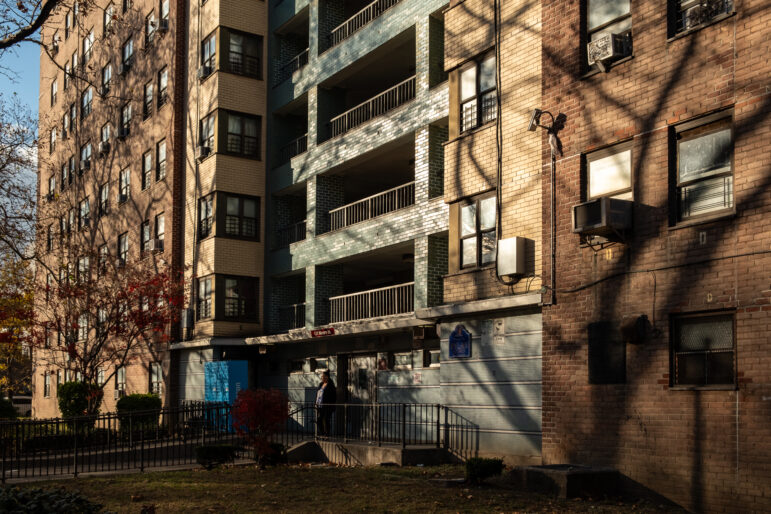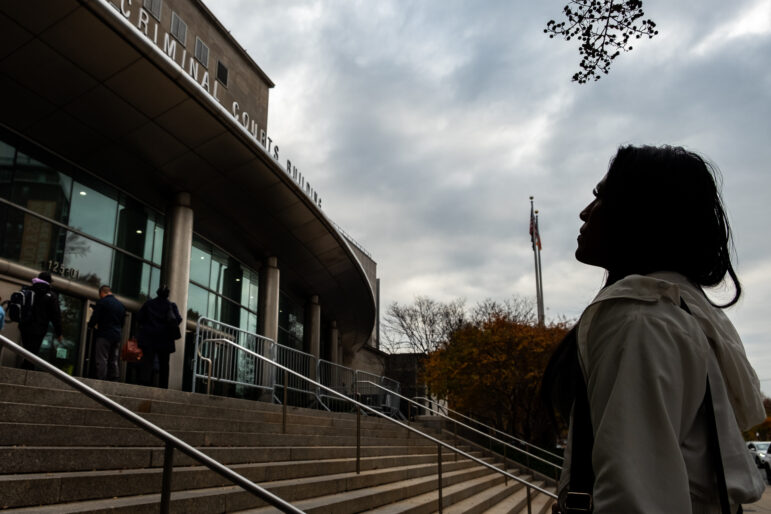The city’s track record for sending organizations cash for their contracts in a timely manner has often been spotty. It didn’t help that many city agencies were effectively out of commission for a week or more after the World Trade Center attacks. Now, with nonprofits themselves facing a severe drop in donations, the city’s delays are hitting service groups harder than ever.
El Puente, an outreach group in Williamsburg, currently has $580,000 worth of city contracts for youth programs. It hasn’t seen any payments from the city in months. “We have a horrendous cash flow problem because of this,” said Luis Garden Acosta, founder and president of the 19-year-old group. Last week, he circulated a notice to his staff explaining they may have to go home empty-handed next payday. At the eleventh hour, a loan from the Fund for the City of New York gave them some of what they needed to pay salaries, rent and vendors. With that already spent, however, said Acosta, “We’re just living check to check.”
While Mothers’ Voices, a national AIDS education organization, waits for the $25,000 owed them for a contract approved in July by the city Department of Youth and Community Development (DYCD) to run 10 workshops for parents about HIV, the group has had to make cuts in its services. “We have already performed some of the work,” said executive director Carol Henry. With two fundraising galas planned for October now cancelled-Cantor Fitzgerald chief Howard Lutnick was head of one of the benefit committees-she has had to lay off their Spanish-speaking outreach worker and has cut workdays from five to four.
While fighting phone problems, DYCD said it is working on processing its current contracts. All existing Youth Development Delinquency Prevention contracts, which were supposed to end on October 1, will be extended through December 31, the agency has announced. But this isn’t just any year: It’s the first time since 1995 that the agency had put out a request for proposals for the delinquency programs, and about 1,000 groups applied.
Now they’re all in limbo. “I feel like I’m a gerbil in a funding wheel,” said Ellen Simon, executive director of the Union Settlement in East Harlem, which first put in for the YDDP funding in April. Relying on government funds for 90 percent of her budget, Simon has delayed the center’s English as a Second Language programs by a couple of weeks in the hopes money will come in.
Contracts based on performance are posing particular problems. The Chinatown Manpower Project has one such arrangement, to provide job training to immigrants and refugees. Under its contract with the city’s Department of Employment, Manpower gets paid only once it places one of its graduates in a job.
Assuming the city’s economic dip deepens, however, this model could cause cash problems for trainers. In Manpower’s case, staff returned to their headquarters on Mott Street after a week out of operation to learn that at least two of the companies with which they were set to place graduates had stopped hiring. Before September 11, they had up to a dozen bilingual grads lined up for telemarketing jobs-$2,000 per student placed-and two newly certified nurse’s aides had expected work at a local hospital, for which the organization would have received a total of $9,000. Both companies “just said we’ll have to wait,” said Manpower Executive Director Sue Lee. To save some cash, Lee has shifted full-time staff to part-time-this while they take on new work helping businesses in Chinatown access state and federal loans to make up for a drop in customers.
Unsure how what the coming months will bring, Lee has asked the Department of Employment to waive some of the performance standards written into the contracts. To date, she said, officials have refused, with one small exception: In instances in which workers are placed in jobs but subsequently downsized-thus denying Manpower payments it is supposed to get when clients remain in their jobs for a certain number of months-she said the city has agreed to calculate payments based on a combination of line-item expenditures and performance.
Calls to the Mayor’s Office of Contracts, which moved back to its office at 253 Broadway just last week, were not returned by press time.








